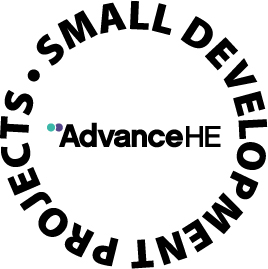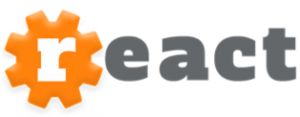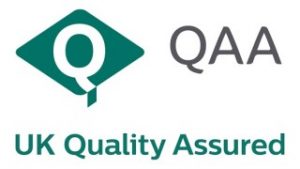STEER leads institutional research and evaluation (contributing evidence to strategic objectives) and externally funded research. Our externally funded research has an impact on national policy and also brings knowledge into Hallam to enhance institutional policy and practice. This can add to an evidence base and rationale for change.
Content
- Access, retention, attainment and progression: A review of the literature 2016-2021
- A Process Evaluation of Phase Two of the Higher Education Progression Partnership South Yorkshire (HeppSY) (2021)
- Understanding Foundation Year Students’ Transition into Higher Education, through Digital Storytelling (2020)
- What factors affect access, retention and graduate outcomes for students with a background of care or family estrangement? (2019)
- Evaluation of the National Mixed Methods Learning Gain Project (2019)
- Observing the observers: Using digital storytelling for organisational development concerning ‘Critical Whiteness’ (2018)
- Evaluation of the National Teaching Fellowship Scheme (2018)
- Use and Abuse of the Student Voice: Leaders’ Responsibilities for Making Positive Use of Student Evaluations of Teaching in Higher Education (2018)
- Creation and Confidence: BME Students as Academic Partners (2017)
- Digital Capability and Teaching Excellence (2016-2017)
Access, retention, attainment and progression: A review of the literature 2016-2021
A team from Sheffield Hallam University (led by Liz Austen, with Rebecca Hodgson, Jill Dickinson, Caroline Heaton, Nathanial Pickering and two student researchers Rachel Mitchell and Shannon O’Connor) have undertaken an integrative literature review (IR) to explore student access, retention, attainment and progression, building on the previously Advance HE-funded work of Webb et al (2017).
The key research question asked was: What evidence-based policy or practice has had a demonstrable impact on student outcomes (access, retention, attainment, and progression) since 2016?
Publications
Austen, L. Hodgson, R. Heaton, C. Pickering, N. & Dickinson, J. (2021). Access, retention, attainment and progression: a review of the literature 2016-2021. Advance HE. https://www.advance-he.ac.uk/knowledge-hub/access-retention-attainment-and-progression-review-literature-2016-2021
A Process Evaluation of Phase Two of the Higher Education Progression Partnership South Yorkshire (HeppSY)
The Higher Education Progression Partnership South Yorkshire (HeppSY) is part of the national Uni Connect programme (UCP) that aims to help school and college students aged 13-19 across South Yorkshire who are most at risk of missing out on higher education. HeppSY is working in partnership with Sheffield Hallam University, The University of Sheffield and South Yorkshire schools and colleges. An external evaluation team from Student Engagement, Evaluation and Research (STEER) at Sheffield Hallam University (SHU) was commissioned to undertake a qualitative process evaluation and make recommendations for future work and programme legacy.
Publications
Understanding Foundation Year Students’ Transition into Higher Education, through Digital Storytelling
This research-informed initiative explored experiences of students during transition onto an Integrated Foundation Year in Art and Design Year (IFYAD) to further develop curriculum and pedagogy, enhance transition and improve retention and progression. This involved collaborative working between course level academics and institutional researchers. An innovative approach of digital storytelling was used instead of a paper based Personal and Professional Develop Plan (PPDP). The project team analysed qualitative data gleaned from these assessment based digital stories.
Publications
Emerging findings were also communicated at recent presentation at the Foundation Year National Annual Conference 2019
What factors affect access, retention and graduate outcomes for students with a background of care or family estrangement?
Funded by the Unite Foundation, this research is delivered by team from Sheffield Hallam University, in partnership with Stand Alone and the Rees Centre for Research in Fostering and Education, University of Oxford.
Led by Professor Jacqueline Stevenson, the research was conducted by a team of researchers comprising Dr Neil Harrison (Oxford), Becca Bland (Stand Alone charity), Dr Zoe Baker and Stella Jones-Devitt (both Sheffield Hallam), and supported by STEER researchers.
Publication
This project completed in Autumn 2019 and was launched at the Houses of Parliament. The report can be found here.
Evaluation of the National Mixed Methods Learning Gain Project
This evaluation contributed to an exploration of various methodologies for measuring learning gain in further and higher education. The National Mixed Methods Learning Gain Project (NMMLGP) aimed to use an online assessment programme that included a combination of test and self-reporting survey questions which sought to evaluate students’:
- critical thinking and problem-solving skills
- attitudes towards their study experience
- engagement with their studies.
The project was initiated by HEFCE in 2016, and was due to finish in the academic year 2019-20. It was reviewed in late 2018 by OFS, who took it over in April 2018 following HEFCE’s closure. On the advice offered by the STEER evaluation team, OFS decided not to progress with the third round of data collection and closed the project. Further work was commissioned to seek student perceptions of learning gain.
Publications
External Presentations
Office for Students National Conference on Learning Gain (March 2019) https://www.officeforstudents.org.uk/news-blog-and-events/events/ofs-national-conference-on-learning-gain/
Observing the observers: Using digital storytelling for organisational development concerning ‘Critical Whiteness’
 Funded by the Leadership Foundation for Higher Education Small Development Project grant 2018.
Funded by the Leadership Foundation for Higher Education Small Development Project grant 2018.
This project aims to test the utility of digital storytelling as a) an intervention for mediating difficult conversations about positive cultural and behavioural change, b) a method of data collection, and c) as an innovative way of sharing evidence and expertise. The focus of the project is the discussion of ‘Critical Whiteness’ within organisational development. Previous research by the project leaders concluded that the absence of Critical Whiteness discussions may be creating a barrier to addressing the Black and Minority Ethnic (BME) attainment gap through curriculum change. We believe that approaches to address implicit bias often focus on individual rather than organisational responsibility for change. Thus, Critical Whiteness is an important and often overlooked area of positive cultural and behavioural change within organisations. This development project will collect and analyse data from one Higher Education Provider and develop a Digital Practice Guide to support the development of further work across the sector. The project runs until July 2018.
Digital stories produced by this project can be viewed here.
Publications
External Presentations
AdvanceHE Towards Embedding EDI in the Curriculum: Collaborative Network Meeting’ (March 2019)
NEON BME Learning Working Group (December 2018) Observing the observers: Using digital storytelling for organisational development concerning ‘critical Whiteness’
Internal Events
Austen, L. & Jones-Devitt , S.(2019) Are you sitting comfortably? Then we shall begin. Exploring the discomfort of discussing critical Whiteness within higher education.
Evaluation of the National Teaching Fellowship Scheme
Funded by the Office for Students (formerly HEFCE), this report evaluates the impact and relevance of the NTFS across the higher education sector.
This research was co-led by Dr Liz Austen (STEER) and Professor Colin McCaig (CDARE) with significant work from Alan Donnelly (STEER) and Dr Christine O’Leary (SHU/SBS). Data was collected from a range of stakeholders between August and November 2017. The report found that the NTFS was valued across the sector and made recommendations for increased impact within and beyond institutions.
Publication
The final report was published in August 2018 and can be accessed here.
Use and Abuse of the Student Voice: Leaders’ Responsibilities for Making Positive Use of Student Evaluations of Teaching in Higher Education
 Funded by the Leadership Foundation for Higher Education Small Development Project grant 2017-2018.
Funded by the Leadership Foundation for Higher Education Small Development Project grant 2017-2018.
‘The Use and Abuse of the Student Voice’ investigates the challenges for academic leaders created by the need to develop education in the context of evaluation of teaching by students. Emerging findings from the project were shared at a national workshop on 20th October 2017 at Sheffield Hallam University. The workshop aimed to help colleagues to make best use of the student voice to recognise and support teaching excellence. The workshop participants’ feedback will also be used to further define and develop the project’s leadership materials.
Publication
Creation and Confidence: BME Students as Academic Partners
 The project set out to achieve: gaining evidence-based insights into the use of co-design and peer-learning as conduits of confidence-building and belonging of BME students; developing a scalable approach to building confidence and fostering belonging of all students; raising awareness of the need to think differently about explanations of BME underachievement. The team found that the biggest barrier concerned staff engagement as – no matter how much evidence was presented – other facets of institutional provision were identified as having priority, resulting in inertia. Considerable emotional labour was expended in trying to elicit change within a resistant culture. Despite this, there have been some very positive developments and enlightening lessons.
The project set out to achieve: gaining evidence-based insights into the use of co-design and peer-learning as conduits of confidence-building and belonging of BME students; developing a scalable approach to building confidence and fostering belonging of all students; raising awareness of the need to think differently about explanations of BME underachievement. The team found that the biggest barrier concerned staff engagement as – no matter how much evidence was presented – other facets of institutional provision were identified as having priority, resulting in inertia. Considerable emotional labour was expended in trying to elicit change within a resistant culture. Despite this, there have been some very positive developments and enlightening lessons.
As part of the HEFCE Catalyst funded REACT project.
Publications
External Presentations
Liz Austen #LTHEChat Wednesday 7th March 8-9PM (GMT) “Can we talk about Whiteness?”
Austen, L. and Jones-Devitt, S. (2017) Challenging wicked problems and folk pedagogies to address the BME attainment gap in Higher Education, Equality Challenge Unit, 8th December 2017
Austen, L. and Pickering, N. (2017) Creation and Confidence: BME students as academic partners at Sheffield Hallam University, React Conference Reacting to the ‘Hard to Reach’ Through Student Engagement Initiatives, 2nd May 2017
Austen, L and Heaton, C. (2016) The wicked problem of BME student attainment, Closing the gap: Research and Practice on Black and Minority Ethnic Student Attainment in Higher Education, , University of Kent, Monday 27th June 2016
Dunne, L. Lowe, T. Simns, S. Jones-Devitt, S. Chitwood, L, Morgan, M. Le, T (2016) The REACT Project: Perspectives on enhancing inclusive approaches to Student Engagement, JISC Change Agents Network, 2nd June 2016
Internal Events
Equalities Objectives Launch Event – Stall (February 2018)
D&S Black Minority & Ethnic Student Attainment Keynote & Workshops -Creation and Confidence: BME students as academic partners but no institutional readiness (July 2017)
SHU flipped workshop – The excellent practitioner who once failed to be excellent (and other short stories – including lessons from REACT), LTA Conference (June 2017)
SHU Workshop – How can we close the BME attainment gap? (Dec 2016)
SHU Conference – Minding the Gaps REACTing to improve BME attainment (Nov 2016)
Digital Capability and Teaching Excellence

Funded by the Quality Assurance Agency for Higher Education.
Publications
External Presentations
Austen, L. Parkin, H.J., and Jones-Devitt, S. (2017) How can digital capability promote teaching excellence? Exploring guidelines for digitally-capable teaching excellence, Higher Education Academy Annual Conference, 5th July 2017.
Parkin, H.J. and Austen, L. (2016) Digital capability and teaching excellence: an integrative review exploring what infrastructure and strategies are necessary to support effective use of technology enabled learning (TEL), Heads of E Learning Forum, 8th November 2016
Parkin, H.J. and Austen, L. (2016) Digital capability and teaching excellence: an integrative review exploring what infrastructure and strategies are necessary to support effective use of technology enabled learning (TEL), JISC Student Experience Group Meeting, 12th October 2016
Internal Events
SHU QAA Report launch and workshop – How can digital capability promote teaching excellence? (Nov 2016)
